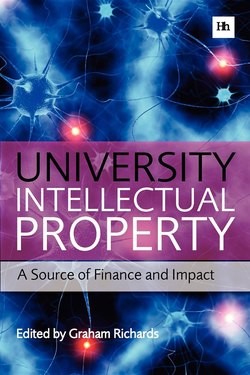Читать книгу University Intellectual Property - Graham Richards - Страница 7
На сайте Литреса книга снята с продажи.
Personal story
ОглавлениеThe British government of Harold Wilson, buoyed up by Wilson’s slogan of the white hot technological revolution, which he coined in an attempt to revitalise the UK economy, decreed that universities should create University and Industry Committees to foster the then not very active boundary between the two sectors.
In 1978 I became chairman of the committee, succeeding my entrepreneurial mathematical colleague Alan Tayler. There was very little happening in terms of interaction between universities and the commercial world at the time. Oxford’s rules prohibited academics from consulting on university-headed notepaper and as far as patents were concerned, the university stated that it neither owned nor sought to own intellectual property derived from work done in the university by its employees.
This attitude derived from the fact that Oxford was totally dominated by the avoidance of any risk to itself. This obsession in turn arose as the result of an infamously damaging case in the 1920s when an academic got the institution into an expensive mess as a result of fraudulent activity. This incident – the Owen case – is described in detail in a later chapter, but suffice it to say for now that so serious were the ramifications that Oxford and its sister university, Cambridge, were seeking to avoid any involvement with intellectual property.
So it was that one of my first acts as chairman of the University and Industry Committee was to take out insurance, very cheaply obtained, to cover the university against claims arising from academics doing consultancy. The old system probably would not have protected Oxford anyway.
